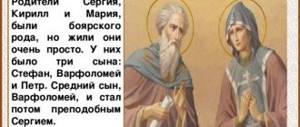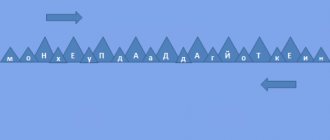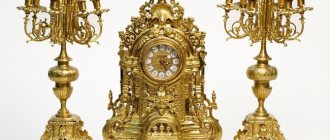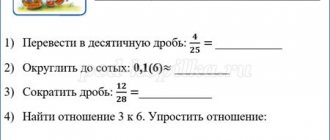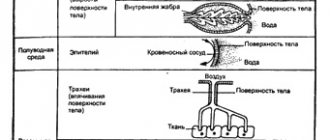Lesson development and presentation “The Life and Work of A.P. Chekhov”
Lesson topic
: The life and work of Anton Pavlovich Chekhov (1860 - 1904) Developed by a teacher of Russian language and literature of the Starodrozhanovskaya Secondary School No. of the Republic of Tatarstan
“It’s good to remember such a person, cheerfulness immediately returns to your life, clear meaning enters into it again” M Gorky.
Lesson objectives:
1. Introduce students to the personality of the writer. 2. Improving monologue speech skills 3. Cultivating a love for the work of A.P. Chekhov.
Equipment:
Portrait of a writer, family photographs, illustrations for works, collections of stories. Computer presentation.
During the classes:
I. Introduction to the topic, objectives and lesson plan. No. 1
Lesson plan: No. 2 1. Childhood of A.P. Chekhov. Taganrog city. “As a child, I had no childhood” (A.P. Chekhov) 2. Studying at a gymnasium and at a vocational school (1868 – 1879) “All my life, drop by drop, I squeezed a slave out of myself” (A.P. Chekhov) 3. The era of the 80s of the XIX century. Studying at the university The first period of creativity. Pseudonym “Antosha Chekhonte” 4. Second period of creativity (90-900s of the 19th – 20th years) Trip to Sakhalin Island World trip Manor in Melikhovo. Book “Sakhalin Island” Story “Ward No. 6”, stories: “Ionych”, “Lady with a Dog” 5. Chekhov’s dramaturgy. last years of life
II. Assimilation of new knowledge and methods of action. 1. Introductory speech by the teacher. Anton Pavlovich Chekhov is one of those writers who enter our lives from childhood and remain with us forever. You, of course, remember the adventures of Chekhov’s “Kashtanka”. Such a story could only be written by a person who loves people, loves animals, and loves life. This love of Chekhov was very active. -What do you think this love was expressed in? (question to the class) (He was a doctor and helped many people cope with illness; he was a writer, and his stories and books helped and are helping to cope with the difficulties of life, help to look at themselves from the outside. He didn’t just plant a tree - he planted entire gardens, He organized many libraries, schools, hospitals with his own money, without advertising his charity. He really did good. At the same time, he was a very cheerful person, inexhaustible in inventions.)
2. A student’s report about the writer’s childhood years. (2 students) No. 3, No. 4-5 A.P. Chekhov was born on January 17, 1860 in Taganrog. Both grandfathers - on the father's side and on the mother's side - were serfs who bought themselves and their families free. The father, Pavel Egorovich, opened his own trading business, but was not distinguished by his entrepreneurial spirit and soon went bankrupt. “Pavel Egorovich and Evgenia Yakovlevna Chekhov,” writes Alexander Pavlovich Chekhov, the writer’s elder brother, in his memoirs, “God blessed him with a large family - they had five sons and one daughter. Anton Pavlovich was the third son. Pavel Egorovich was a Taganrog merchant of the second guild, traded in groceries, enjoyed general respect and held the public - honorary, and therefore free - positions of police commander, and later - a member of the trade deputation. He was known among his fellow citizens as a wealthy man, but in reality he could barely make ends meet.” No. 6 The family lived a difficult life. The children helped their father in the shop and sang in the church choir. The father's temper was difficult, but he loved art and tried to give his children a good education. The mother, Evgenia Yakovlevna, softened the children’s lives with affection and tenderness. Later, Anton Pavlovich will say: “We have talent from our father’s side, and our soul from our mother’s side.”
3. The teacher's word. No. 7, 8, 9 Despite the difficulties, the writer did not lose interest in life. Chekhov began to become interested in theater and literature early; While studying at the gymnasium, he participated in the publication of a handwritten magazine. I read a lot and was interested in both foreign and Russian literature. His reading circle is wide: Pushkin, Lermontov, Turgenev, Goncharov, Cervantes, Belinsky, Dobrolyubov, Pisarev... On the stage of the Taganrog theater, Chekhov first saw the plays of Shakespeare, Ostrovsky, Gogol. Antosha is interested in theater, and at home he performs plays with his brothers, writes sketches, fairy tales in verse, and vaudeville. The father's difficult situation led to ruin and he had to go to Moscow. - What happened to Chekhov? No. 10 (When Anton was 16 years old, his father went bankrupt and fled from a debtor’s prison to Moscow. Anton had to stay in Taganrog, earn money for living, study through lessons, and send small remittances to the family.)
— How did his life develop further? (After graduating from high school, he came to Moscow. Here he became a medical student at Moscow University and began collaborating in humorous magazines, publishing short stories under the pseudonym Antosha Chekhonte. The fees were good support for the family of the young writer. But the Chekhov family was not rich. To be more precise, they lived in constant need.)
— How can you comment on Chekhov’s words? No. 11 “I have no doubt,” Chekhov wrote, “my studies in medical sciences had a serious influence on my literary activity; they significantly expanded the scope of my observations, enriched me with knowledge...” (The student trained to be a doctor, but continued to write - stories, novels, plays. Chekhov worked incredibly hard. Many talents suffered and died in the literary labor. Only by Chekhov’s amazing talent and determination one can explain why he did not break under these conditions. The young Chekhov was attracted by literary interests. Together with his brother Nikolai, Anton Pavlovich began collaborating in the humorous magazines “Dragonfly and “Alarm Clock”. Anton’s texts were illustrated by Nikolai.) No. 13 No. 14 - Later, Chekhov, in addition to short stories began to write stories and serious plays. Who will we meet in them! There are doctors, teachers, officials, students, military men, landowners, peasants, beggars, police officers and prisoners. All professions, all ages – all of Russia! Chekhov ridiculed everything that interfered with living honestly and justly. In a word, from satirical miniatures the writer takes a rapid path to lyrical prose. In 1886, the collection “Motley Stories” was published, No. 15 in which, following the traditions of Russian literature, A.P. Chekhov, in depicting the most everyday phenomena of reality, showed the contradiction between human nature and the social structure of society. No. 16 A.P. Chekhov is increasingly asserting that “a meaningful life without a definite worldview is not life, but a burden, a horror.” Ascetics are needed like the sun, says A.P. Chekhov, society needs people of heroism, faith and a clearly realized goal... No. 17 People who knew Anton Pavlovich closely were amazed by his talent for humanity, spiritual sensitivity, and the gift of communication. The Chekhovs' Moscow house on Sadovo-Kudrinskaya was always lively and crowded. - What period of life comes next? No. 18-19 (Then follows the period of Sakhalin. In the fall of 1889, A.P. Chekhov begins to prepare for a trip to Sakhalin, where he is driven by a great desire to tell the truth about this place of “unbearable suffering, of which only a free and forced person is capable.” Almost 4,500 miles on horseback, through the cold, the spring thaw... From the road, Anton Pavlovich sends travel notes. Siberia and the mighty Yenisei make a huge impression: “I stood and thought: what a full, intelligent and courageous life will illuminate these shores over time!”) - What does he meet there? What new things will you learn there? No. 20 -21
(The result of the trip was the book “Sakhalin Island”, full of the writer’s thoughts about the social structure of society, which gives rise to injustice and violence. The heavy burden of Sakhalin experiences was the basis for perhaps the most tragic Chekhov’s work - the story “Ward No. 6.” “When I finished reading yesterday "In the evening this story, I felt downright creepy, I couldn’t stay in my room, I got up and went out. I have a feeling as if I was locked in ward No. 6" - this is how V. I. Lenin conveyed his impression of the story ) No. 19,20,21.
— What other works of the poet do you know? No. 22 (the 90s were the heyday of the writer’s creativity. One after another, wonderful stories “Ionych”, “Gooseberry”, “Man in a Case”, “About Love” appeared. Chekhov showed how much beauty and goodness lies in people how imperceptibly and irreversibly all this can drown in the mud of the little things in life.) No. 22 - This period of life was also fruitful, which gave him the opportunity to give us unforgettable works. Following this period comes Melikhovo. What can you tell us about the village of Melikhovo? No. 23
a) (In 1892, Chekhov bought a small estate in the village of Melikhovo. “We need at least a piece of social and political life,” Anton Pavlovich explained his decision to leave for the village. In Melikhovo, A.P. Chekhov is an unselfish and selfless doctor, public figure, guardian of the needs of people) No. 24 b) (On Melikhovo material, Chekhov writes the story “Men,” where he paints a terrible picture of hopeless need, the plight of the people, the cruel truth of the collapse of all illusions associated with the reform of 1861) c) (In Melikhovo, Chekhov creates "The Seagull". It was an experiment in a new psychological drama. The play premiered in St. Petersburg on October 17, 1896. The performance was a failure.)
— What works are still appearing in print? No. 25 -26 (In 1899, a new story by Chekhov, “The Lady with the Dog,” appeared in print. Impressed by what he read, Gorky wrote to Chekhov: “You are doing a huge job with your little stories - arousing in people disgust for this sleepy, half-dead life...” )
— Yes, Chekhov is a master of short stories, which are always written appropriately and on time. The playwright's skill is also second to none. Of great importance for Chekhov, the playwright (and for the entire Russian theater), was his acquaintance with the figures of the Moscow Art Theater. No. 27, 28 — Which plays became the most famous? “The Cherry Orchard”, “The Seagull” No. 29 (The leading feature of Chekhov’s dramaturgy is “internal action”, that intense spiritual life of the heroes when they receive an insight into the truth of their own lives. Chekhov shows the real cause of the tragedy - the abnormal social structure of society and raises the question of personal responsibility for one’s destiny. No. 30 “The Seagull” is the only modern play that captivates me as a director, and you are the only modern writer who is of great interest to the theater with an exemplary repertoire,” wrote A.P. to V.I. Chekhov. Nemirovich-Danchenko.) No. 31
- In fact, the plays were loved by the public and were a great success among readers. Just news about the enormous success of his plays by A.P. Chekhov received it in Yalta, where he had to move due to a sharp deterioration in his health. This is where his next stage of life continues. No. 32 At this time, L.N. lived in Crimea, not far from Yalta. Tolstoy. Chekhov often visited him. Mutual respect bound the two pillars of Russian literature. “Chekhov is Pushkin in prose,” said Lev Nikolaevich. “This is how everyone can find a response to their personal experience in Pushkin’s poems, and everyone can find the same response in Chekhov’s stories.”
— Who else visited him in Yalta? No. 33
(A frequent guest of Anton Pavlovich was M. Gorky, who considered his acquaintance with Chekhov “the most valuable gift of fate.”) No. 34 (In the spring of 1897, A.P. Chekhov began a sharp exacerbation of the tuberculosis process, which had long undermined his health. In the hospital, Chekhov was visited by L .N. Tolstoy: “I had Lev Nikolaevich at the clinic, with whom we had a very interesting conversation... We talked about immortality.”) No. 35 - The honoring that took place was a surprise for Chekhov. Addresses and telegrams were read out with a feeling of sincere love for the writer. A.P. Chekhov was seriously ill. The celebration turned out to be solemn and sad. Russia, the entire progressive world remembers, reads, loves Chekhov. No. 36
III. Improving skills and abilities. Test on the biography of A.P. Chekhov.
A.P.
Chekhov was born: 1. in Moscow 2. in St. Petersburg 3. in Taganrog Anton Chekhov studied at the gymnasium, where there was 1. a wonderful environment conducive to a creative life 2. meaningless cramming, cruel discipline 3. a normal environment In the Chekhov family 1. there were two children 2. there were many children 3. Anton was the only child Chekhov’s father was 1. a very rich man 2. a large businessman 3. a small merchant When Pavel Yegorovich went bankrupt, the family left 1. to St. Petersburg 2. to Moscow 3. to Kiev Anton Chekhov 1 . travels with his family 2. stays in Taganrog 3. goes to study abroad Anton Chekhov 1. is well-off financially 2. works to support himself and finish high school 3. quits high school to work In the fall of 1879, Anton Chekhov goes to Moscow and enrolls 1. to the Medical Institute 2. to the Literary Institute 3. to Moscow University at the Faculty of Medicine Anton Pavlovich Chekhov begins to write short humorous stories 1. when he finishes his studies at a higher educational institution 2. during his studies 3. after graduating from high school Anton Pavlovich signs 1. with his name 2. by the name of his brother 3. by a pseudonym Chekhov's stories 1. very serious and sad 2. humorous 3. romantic Chekhov wrote the following stories 1. “Death of an Official” 2. “Prisoner of the Caucasus” 3. “The Captain’s Daughter” 4. “Chameleon” 5 "Thick and Thin" By the beginning of the 90s 1. Chekhov was completely unknown as a writer 2. Chekhov worked only as a doctor 3. Chekhov was known throughout reading Russia Chekhov at that time 1. was very rich and healthy 2. was poor and ill 3. was quite well off financially In the spring of 1890, Chekhov decided to go 1. abroad 2. to Sakhalin 3. to St. Petersburg. The trip was 1. entertaining 2. very easy and carefree 3. very difficult. During the trip, Chekhov 1. worked a lot 2. was treated in a sanatorium 3. rested and had fun. For the full text of the material, lesson development and presentation “The Life and Work of A.P. Chekhov”, see the downloadable file
. The page contains a fragment.
| Author: Alieva Gulnaz Dzhavdatovna → gulja 11/12/2010 16 71221 9852 | Comment |
Thank you for your mark. If you want your name to be known to the author, log in to the site as a user and click Thank you again. Your name will appear on this page.
Login | Registration
Have an opinion? Leave a comment
